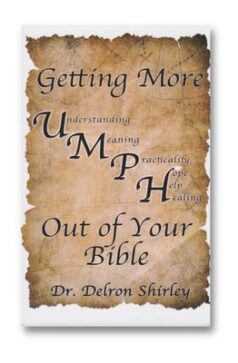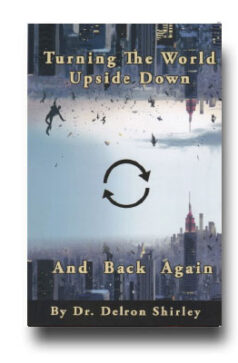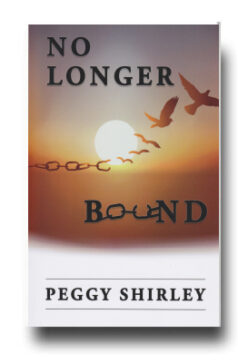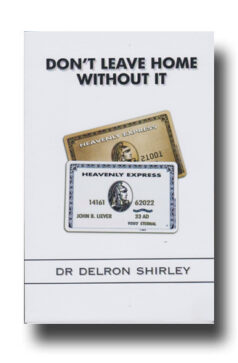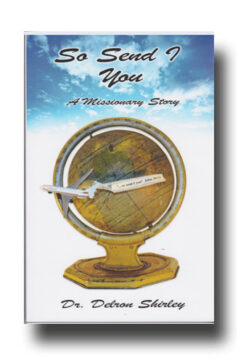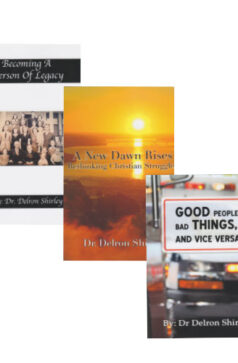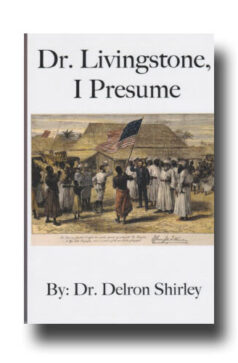The humanitarian aspect of my missionary work has taken me around the world in relief projects associated with every kind of natural disaster short of a volcano eruption. I’ve seen firsthand what the insurance companies refer to as the “acts of God” – a legal term used throughout the English-speaking world to speak of natural hazards outside human control, for which no individual person or government can be held responsible.
I was part of a relief team in Nicaragua after the landfall of Hurricane Mitch, the second-deadliest Atlantic hurricane on record. The team arrived by ship but were unable to dock in the harbor because the waterfront was blocked by ships that had been sunk during the storm. As we distributed food and supplies to the churches, I was amazed to find that at least one church was actively collecting donations to fill shoeboxes for the Samaritan’s Purse Christmas project. What a demonstration of the love of God – the Nicaraguan believers were actively helping others in the midst of their own need!
I also had the opportunity to visit the southern coast of India and the island nation of Sri Lanka just weeks after the deadly tsunami of December 26, 2004. As we drove for hours, covering hundreds of miles, we found no relief from the devastation. There was seemingly endless destruction and rubble. No matter how far we drove, the landscape remained the same – heaps of debris and splintered remains of what was once the homes of the people whose lives had come to tragic ends in a split second. I was on the battlefield of nature versus mankind, and – from all I could see – the brutality of nature had vanquished. This overwhelming scene of destruction left an indelible mark on my memory, but it also began to drive me on a quest to understand the implications of the biblical proclamation, “When the enemy shall come in like a flood, the Spirit of the LORD shall lift up a standard against him.” (Isaiah 59:19)
Though some recognized Bible teachers have suggested that the comma in this verse be relocated so that the phrase “like a flood” is associated with the moving of the Spirit, it seems natural from the grammatical structure of the sentence that the traditional reading is true to the prophet’s original intent when he penned the words. By using a simile (a grammatical expression using “like” or “as” in its description) when referring to the action of the enemy and a metaphor (a comparison without the use of “like” or “as”) when describing the response from the Spirit of the Lord, he’s linking the two together in a comparison and a contrast at the same time. The attack of the enemy is as devastating as a flood and as unimaginably far-reaching as a tsunami. However – and this is the most important “however” one could possibly commit to paper – when the tsunami strikes, the Spirit of the Lord will raise up a standard against that attack!
To understand what this verse is intended to communicate, we need a bit of a history lesson to accompany the grammar lesson we have just completed. In Exodus chapter seventeen we find the story of a vicious battle between the Israelites and the Amalekites in which the deciding element was the fact that Moses was able to hold his hands up during the entire fray. At any point that his hands began to lower, the enemy began to prevail; when his hands were again raised, the tide turned in favor of the Israelites. With the help of Aaron and Hur, Moses was able to hold his position until his army victoriously took the field. This raising of an ensign over a battle to encourage the combatants and ensure their victory is exactly what the passage in Isaiah is promising. It refers to the same courage-building inspiration that rose up in the heart of Francis Scott Key when he looked through the smoke and fog to see Old Glory still unfurled above the ramparts of Fort McHenry, prompting him to put pen to paper birthing those immortal words, “Oh, say, does that star-spangled banner yet wave…”
But what does that have to do with a tsunami? Well, in my investigations following the inundation, I ran across some incredibly powerful stories of Christians who were saved during this onslaught from the enemy. One pastor told me of driving down the coastal road literally feet beyond the reach of the tsunami’s wave as it lashed into shore. Since it was a Sunday morning the day after Christmas, he had changed his normal routine in order to be part of a special service in which the bishop was to deliver a holiday message. Had he been on his normal schedule, he would have further down the road – and well within reach of the inundating wave – at the time the tsunami hit. One entire Christian community was spared because the preacher preached too long. Again, because of the Christmas holiday, there was a guest minister in the area and all the Christians had gathered at one central church a bit inland for his message. Had he not been there, the Christians in the seaside village would have worshipped in their local church and been back in their homes when the massive wave of death attacked. Additionally, had the guest minister stuck with the traditional timetable for worship services, he would have dismissed the people and sent them back down the sandy paths to their homes just in time to have been swallowed up by the churning waters; however, he continued to add more and more points to his message until it went far beyond the usual dismissal time – but just long enough to keep the worshippers on high ground until the tsunami’s waters washed back out to sea.
I don’t intend to say that no Christians lost lives, loved ones, or livelihoods. By no means is this the case. Even those in the story I just shared came back to find their homes wiped away and their fishing boats splintered. Other Christians did die while some watched as their family members disappeared in the churn of the monstrous waves. They were in no way immune to the tragedy. My only point here is that as the flood was coming in, the Spirit of the Lord was indeed raising up a standard – a victory banner – on behalf of the people of God.
April 25, 2015, was a Saturday morning in Nepal – meaning that it was the time that the Christians were all in church. No, they are not all Seventh Day Adventist; it’s just that Saturday is the only day that most Nepalese have off work, making it the most convenient day of the week for them to gather for worship. And it was during the middle of worship time that the tragic 8.1-magnitude earthquake struck. Because of my long-standing relationship with the believers in the country, I rushed into Nepal as soon as possible and initiated an effort to help rebuild churches and homes. As I traveled around the country, I heard many stories of what had happened that Saturday morning. For some, it was a blessing that they were in church since their homes were destroyed but it turned out that the church building proved strong enough to withstand the quake. For others it was a tragedy that they were in church because the building collapsed, killing all the worshippers inside. In fact, I learned of one village that lost the entire Christian population in the matter of the few seconds that it took the church to crumble.
I was in Liberia during the Ebola epidemic that took close to five thousand lives, and I found that the disease did not discriminate between believers and non-believers; however, again and again, I heard stories of Christians who bravely put their own lives at risk to help those infected with the virus and how God protected them.
I have also personally had to deal with so-called “acts of God” that threatened my personal property. I spent the first twenty-five years of my married life in Indiana – in “tornado alley.” And eventually, the reputation of our community caught up with us. A tornado touched down in my neighborhood, sending eighty-mile-an-hour winds down my block. A giant tree in one of my neighbor’s yard crashed into his house – leaving him with not a split-level home, but simply a split home. The neighbor on the other side had a huge tree fall directly on top of his car – talk about a “compact car.” At my house, we lost a lot of limbs and some massive trees, but the only thing that happened to the house itself was that one limb hit the rain gutter as it flew by the back of the house – leaving a one-inch dent in the downspout. When we moved to Colorado, we were no longer threatened by tornadoes; however, we did move into a high wild-fire zone – and that threat eventually made itself real. One Saturday, we were away on a fun day with the family when we got a call telling us that a huge wildfire had broken out essentially in our backyard and that we had only thirty minutes to evacuate. Since we couldn’t even get back to the house in thirty minutes, we simply resigned ourselves to the fact that everything we owned was in God’s hands and that we could start all over if necessary. For the next seven days, we were evacuated from our home and left with only the clothes on our backs. Just as the ravaging fire – pushed by sixty-mile-an-hour winds – was actually moving into our subdivision, the winds shifted and sent the blaze into another subdivision where almost four hundred homes went up in flames. I can’t say anything about the losses that the people – believers and non-believers alike – suffered. However, I can simply say that I believe that God protected my home from the tornado and the fire because I’ve believed in Psalm 91:10, “There shall no evil befall thee, neither shall any plague come nigh thy dwelling” – a scriptural truth that I’ve claimed even before I had my own home to apply it to!
Even though we speak of these natural disasters as “acts of God,” we know that it is totally contrary to nature of a good God who gives good gifts (James 1:17) to send such calamities upon the earth. In that case, why do they come? Paul gives us an answer when he explains that whole creation literally groans and travails in pain (Romans 8:22) as it waits for the manifestation of the sons of God (Romans 8:19) Certainly, there is an eschatological message – explaining some relevant truths about the end of the world – to be found here; however, it is very important that we actually read these passages in the bigger context. When we do so, we’ll readily see that the idea of the turmoil that the created order is experiencing is actually in the context of the necessity for Christians to learn how to live in the Spirit.
The Spirit itself beareth witness with our spirit, that we are the children of God: And if children, then heirs; heirs of God, and joint-heirs with Christ; if so be that we suffer with him, that we may be also glorified together. For I reckon that the sufferings of this present time are not worthy to be compared with the glory which shall be revealed in us. For the earnest expectation of the creature waiteth for the manifestation of the sons of God. For the creature was made subject to vanity, not willingly, but by reason of him who hath subjected the same in hope, Because the creature itself also shall be delivered from the bondage of corruption into the glorious liberty of the children of God. For we know that the whole creation groaneth and travaileth in pain together until now. And not only they, but ourselves also, which have the firstfruits of the Spirit, even we ourselves groan within ourselves, waiting for the adoption, to wit, the redemption of our body…Likewise the Spirit also helpeth our infirmities: for we know not what we should pray for as we ought: but the Spirit itself maketh intercession for us with groanings which cannot be uttered. And he that searcheth the hearts knoweth what is the mind of the Spirit, because he maketh intercession for the saints according to the will of God. And we know that all things work together for good to them that love God, to them who are the called according to his purpose. For whom he did foreknow, he also did predestinate to be conformed to the image of his Son, that he might be the firstborn among many brethren. Moreover whom he did predestinate, them he also called: and whom he called, them he also justified: and whom he justified, them he also glorified. What shall we then say to these things? If God be for us, who can be against us? (Romans 8:16-31)
The apostle begins this section with the fact that the Holy Spirit is trying to reveal to us that we are the children of God. Then he mentions that the creation is in travail as it anticipates the revelation of the sons of God. Even though this revelation may speak of a future event, the context clearly implies that such a manifestation could come at any point that we as believers actually grasp hold of the message that the Holy spirit is trying to awaken inside of us. Next, Paul reminds us that we have infirmities that keep us from tapping into the realities that God has for us; however, he immediately offers the remedy – the Holy Spirit will direct our prayers with the end result that everything will work out for our good. He then concludes the discussion with the rhetorical question of what opposition could dissuade us when we have this revelation. In other words, Paul is telling us that there is a lot of natural turmoil in the fallen world that we live in and the only way to overcome it is to realize that “Ye are of God, little children, and have overcome them: because greater is he that is in you, than he that is in the world.” (I John 4:4)
The Old Testament story of Naomi is a perfect illustration of a woman who lived through a number of “acts of God” and finally found the key to overcoming them. The introductory section of the book of Ruth described the natural calmatives that struck in her life: a famine (Ruth 1:1), the death of her husband (Ruth 1:3), and the loss of her two sons who would be her only means of support after the passing of her husband (Ruth 1:5). The “insurance agent” inside of Naomi assessed her problems as “acts of God” and claimed that God afflicted her, “The Almighty hath dealt very bitterly with me. I went out full and the Lord hath brought me home again empty…the Almighty hath afflicted me.” (Ruth 1:20-21) Because she was not walking in the revelation that she was a child of God as Paul described in Romans chapter eight, Naomi fell into an identity crisis and demanded that she be known as “Mara” – meaning “bitter.” However, the narrator of the book of Ruth (the Holy Spirit) had a different idea about the woman in that he never referred to her as “Mara” but used her name “Naomi” – meaning “sweet” – twenty times in the short four-chapter book!
Naomi eventually began to recognize the blessing of God upon her life when she discovered that Ruth had stumbled upon the fields of her kinsman Boaz and had found favor in his eyes, “Naomi said unto her daughter in law, Blessed be he of the Lord, who hath not left off his kindness to the living and to the dead.” (Ruth 2:20) The revelation continued to unfold until it brought the restoration of all that Naomi had lost and even more abundance, “And the women said unto Naomi, Blessed be the Lord, which hath not left thee this day without a kinsman, that his name may be famous in Israel. And he shall be unto thee a restorer of thy life, and a nourisher of thine old age: for thy daughter in law, which loveth thee, which is better to thee than seven sons, hath born him.” (Ruth 4:14-15) An old saying goes that we can either let hard times make us bitter or better. At first, Naomi chose to be bitter; however, as she began to see the hand of God at work, she realized that He had something better in store for her.
What a powerful lesson to learn and live by – the natural calamities that come upon us are not acts of God; however, the revelation that there is a greater one inside of us as sons and daughters of God does release God to act on our behalf.



